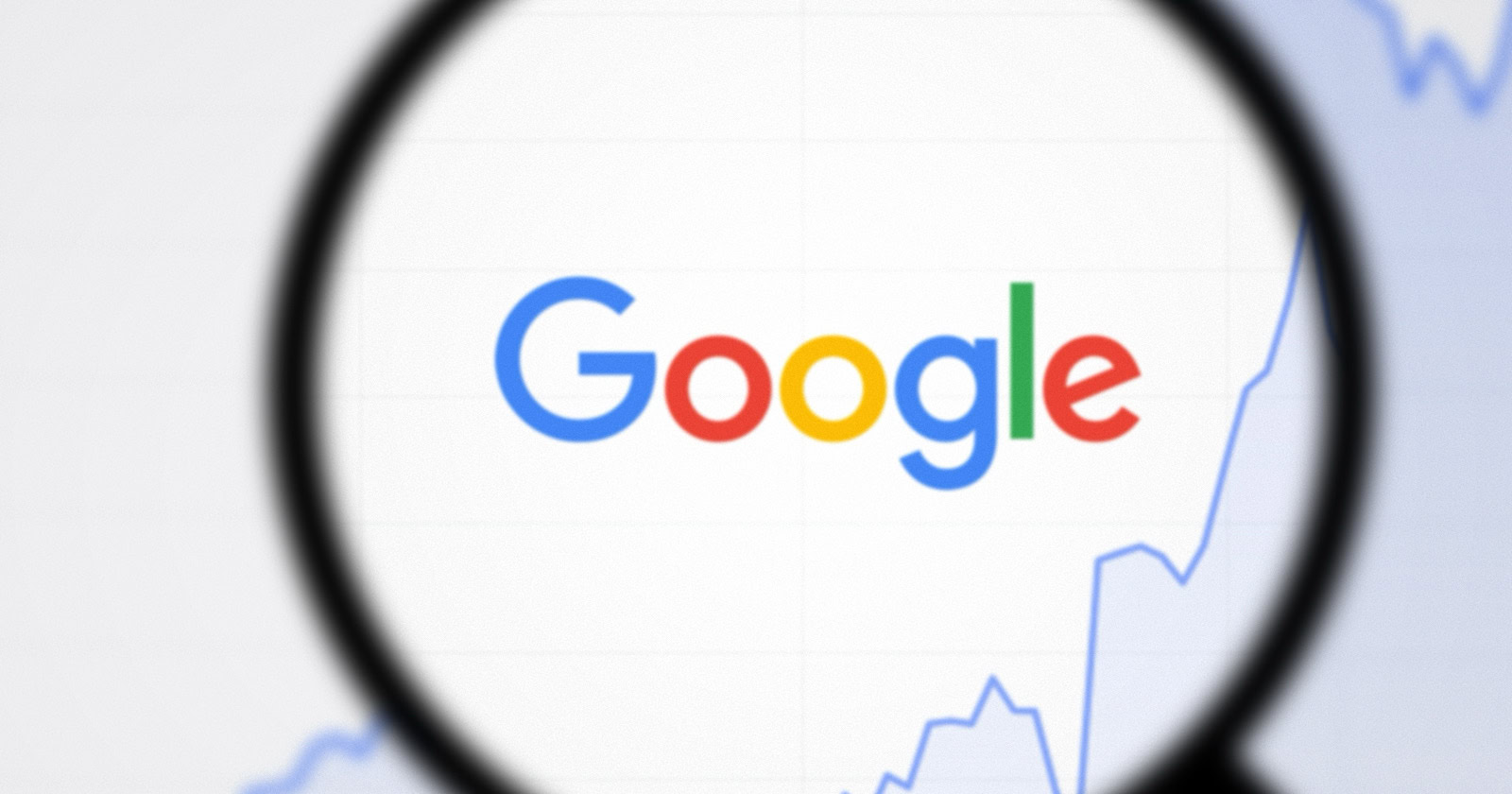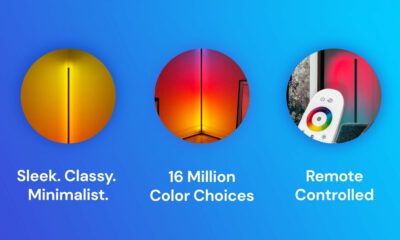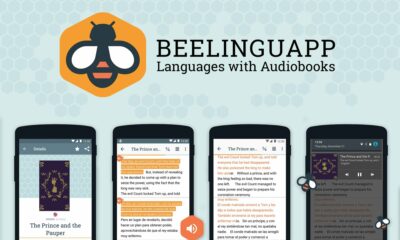Google Discover Now Excludes 5 Kinds of Content

Google updated it’s Google Discover policies to add five kinds of content that may be excluded from being recommended. Publishers should take note and govern themselves accordingly.
Google Discover
Discover is a way that Google shows interesting content to mobile phone users with the Google App. Google Discover is different from Google Search in that Google automatically chooses the kind of content to show based on recent search history and other factors.
Google Discover can also be controlled by the user by blocking certain kinds of content when Google gets it wrong as well as other ways to indicate preferences.
Some of the content is new and other content is evergreen, content that isn’t new to the web but may be new to the person browsing Google Discover.
Google Discover is a great way for content creators to gain more site visitors.
Google describes what Discover is like this:
“With Discover, you can get updates for your interests, like your favorite sports team or news site, without searching for them. You can choose the types of updates you want to see in Discover in the Google app or when you’re browsing the web on your phone.”
What Changed in Google Discover
Google updated it’s developer support web page that helps publishers understand how to get more traffic from Google Discover.
The web page had additional content added to it in order to explain a recent change to the kinds of site Google shows in Discover.
Google’s update to the Discover support page documentation now gives examples of five types of content that will not be shown in Discover.
These are the five examples of the kinds of content that Google said are excluded from Discover:
- Job Applications
- Petitions
- Forms
- Code Repositories
- Satirical Content
Satirical Content
Publishers of satirical content have apparently been noticing a decline in traffic from Google Discover. The reason why satirical content could be problematic is that users might not be able to tell if the content is real or not.
Satire usually pokes fun of targets like politicians and popular societal trends by the use of exaggeration. This kind of content can easily be mistaken for real news because people who are prone to believe a certain point of view (confirmation bias) will take it to be for real.
For example, someone who believes that members of a specific political party are lazy and corrupt might believe a satirical news article about those politicians being caught taking bribes while napping is a real news account.
Google updated their Get on Discover Support Page with a brand new paragraph that describes what kind of content might be excluded from Google Discover.
This is the new guidance for Google Discover:
“To deliver a good user experience, Discover seeks to present content that’s suitable for interest-based feeds, such as articles and videos, as well as filter out content that’s not desired or that might confuse readers. For example, Discover might not recommend job applications, petitions, forms, code repositories, or satirical content without any context.”
Report that Google Incorrectly Labeling News as Satire
Usually when Google rolls out something new there are some sites that inadvertently get caught up and lose traffic. These cases are known as False Positives.
A False Positive happens when Google introduces a new algorithm change that is meant to remove certain kinds of sites from showing. Sites that are removed by mistake are known as False Positives.
Historically Google receives feedback about False Positives and responds by making changes to improve the algorithm so that False Positives are minimized.
Search Marketer Lily Ray made an interesting post in LinkedIn about a false positive.
She said:
“It also looks like the label “Satire” may be used pretty broadly across many sites that provide exaggerated headlines, even if the content itself is not actually satire.”
This sounds like a case of a false positive where an exaggerated headline may have caused an article to not show up in Google Discover. Moving forward, publishers may want to moderate article titles to tone down any clickbait type exaggerations.
Citation
Google Warns About Misuse of Its Indexing API

Google has updated its Indexing API documentation with a clear warning about spam detection and the possible consequences of misuse.
Warning Against API Misuse The new message in the guide says:
“All submissions through the Indexing API are checked for spam. Any misuse, like using multiple accounts or going over the usage limits, could lead to access being taken away.”
This warning is aimed at people trying to abuse the system by exceeding the API’s limits or breaking Google’s rules.
What Is the Indexing API? The Indexing API allows websites to tell Google when job posting or livestream video pages are added or removed. It helps websites with fast-changing content get their pages crawled and indexed quickly.
But it seems some users have been trying to abuse this by using multiple accounts to get more access.
Impact of the Update Google is now closely watching how people use the Indexing API. If someone breaks the rules, they might lose access to the tool, which could make it harder for them to keep their search results updated for time-sensitive content.
How To Stay Compliant To use the Indexing API properly, follow these rules:
- Don’t go over the usage limits, and if you need more, ask Google instead of using multiple accounts.
- Use the API only for job postings or livestream videos, and make sure your data is correct.
- Follow all of Google’s API guidelines and spam policies.
- Use sitemaps along with the API, not as a replacement.
Remember, the Indexing API isn’t a shortcut to faster indexing. Follow the rules to keep your access.
This Week in Search News: Simple and Easy-to-Read Update

Here’s what happened in the world of Google and search engines this week:
1. Google’s June 2024 Spam Update
Google finished rolling out its June 2024 spam update over a period of seven days. This update aims to reduce spammy content in search results.
2. Changes to Google Search Interface
Google has removed the continuous scroll feature for search results. Instead, it’s back to the old system of pages.
3. New Features and Tests
- Link Cards: Google is testing link cards at the top of AI-generated overviews.
- Health Overviews: There are more AI-generated health overviews showing up in search results.
- Local Panels: Google is testing AI overviews in local information panels.
4. Search Rankings and Quality
- Improving Rankings: Google said it can improve its search ranking system but will only do so on a large scale.
- Measuring Quality: Google’s Elizabeth Tucker shared how they measure search quality.
5. Advice for Content Creators
- Brand Names in Reviews: Google advises not to avoid mentioning brand names in review content.
- Fixing 404 Pages: Google explained when it’s important to fix 404 error pages.
6. New Search Features in Google Chrome
Google Chrome for mobile devices has added several new search features to enhance user experience.
7. New Tests and Features in Google Search
- Credit Card Widget: Google is testing a new widget for credit card information in search results.
- Sliding Search Results: When making a new search query, the results might slide to the right.
8. Bing’s New Feature
Bing is now using AI to write “People Also Ask” questions in search results.
9. Local Search Ranking Factors
Menu items and popular times might be factors that influence local search rankings on Google.
10. Google Ads Updates
- Query Matching and Brand Controls: Google Ads updated its query matching and brand controls, and advertisers are happy with these changes.
- Lead Credits: Google will automate lead credits for Local Service Ads. Google says this is a good change, but some advertisers are worried.
- tROAS Insights Box: Google Ads is testing a new insights box for tROAS (Target Return on Ad Spend) in Performance Max and Standard Shopping campaigns.
- WordPress Tag Code: There is a new conversion code for Google Ads on WordPress sites.
These updates highlight how Google and other search engines are continuously evolving to improve user experience and provide better advertising tools.
AI
Exploring the Evolution of Language Translation: A Comparative Analysis of AI Chatbots and Google Translate

According to an article on PCMag, while Google Translate makes translating sentences into over 100 languages easy, regular users acknowledge that there’s still room for improvement.
In theory, large language models (LLMs) such as ChatGPT are expected to bring about a new era in language translation. These models consume vast amounts of text-based training data and real-time feedback from users worldwide, enabling them to quickly learn to generate coherent, human-like sentences in a wide range of languages.
However, despite the anticipation that ChatGPT would revolutionize translation, previous experiences have shown that such expectations are often inaccurate, posing challenges for translation accuracy. To put these claims to the test, PCMag conducted a blind test, asking fluent speakers of eight non-English languages to evaluate the translation results from various AI services.
The test compared ChatGPT (both the free and paid versions) to Google Translate, as well as to other competing chatbots such as Microsoft Copilot and Google Gemini. The evaluation involved comparing the translation quality for two test paragraphs across different languages, including Polish, French, Korean, Spanish, Arabic, Tagalog, and Amharic.
In the first test conducted in June 2023, participants consistently favored AI chatbots over Google Translate. ChatGPT, Google Bard (now Gemini), and Microsoft Bing outperformed Google Translate, with ChatGPT receiving the highest praise. ChatGPT demonstrated superior performance in converting colloquialisms, while Google Translate often provided literal translations that lacked cultural nuance.
For instance, ChatGPT accurately translated colloquial expressions like “blow off steam,” whereas Google Translate produced more literal translations that failed to resonate across cultures. Participants appreciated ChatGPT’s ability to maintain consistent levels of formality and its consideration of gender options in translations.
The success of AI chatbots like ChatGPT can be attributed to reinforcement learning with human feedback (RLHF), which allows these models to learn from human preferences and produce culturally appropriate translations, particularly for non-native speakers. However, it’s essential to note that while AI chatbots outperformed Google Translate, they still had limitations and occasional inaccuracies.
In a subsequent test, PCMag evaluated different versions of ChatGPT, including the free and paid versions, as well as language-specific AI agents from OpenAI’s GPTStore. The paid version of ChatGPT, known as ChatGPT Plus, consistently delivered the best translations across various languages. However, Google Translate also showed improvement, performing surprisingly well compared to previous tests.
Overall, while ChatGPT Plus emerged as the preferred choice for translation, Google Translate demonstrated notable improvement, challenging the notion that AI chatbots are always superior to traditional translation tools.
Source: https://www.pcmag.com/articles/google-translate-vs-chatgpt-which-is-the-best-language-translator
-

 WORDPRESS3 days ago
WORDPRESS3 days agoWordPress biz Automattic details WP Engine deal demands • The Register
-
SEARCHENGINES5 days ago
Daily Search Forum Recap: September 30, 2024
-

 SEARCHENGINES7 days ago
SEARCHENGINES7 days agoGoogle Volatility With Gains & Losses, Updated Web Spam Policies, Cache Gone & More Search News
-

 SEO7 days ago
SEO7 days ago6 Things You Can Do to Compete With Big Sites
-
SEARCHENGINES4 days ago
Daily Search Forum Recap: October 1, 2024
-

 SEO6 days ago
SEO6 days agoAn In-Depth Guide For Businesses
-

 AFFILIATE MARKETING6 days ago
AFFILIATE MARKETING6 days agoThis Minimalist Lamp Lets You Pick From 16 Million+ Lighting Colors for Maximum Productivity
-

 AFFILIATE MARKETING6 days ago
AFFILIATE MARKETING6 days agoNvidia CEO Jensen Huang Praises Nuclear Energy to Power AI














